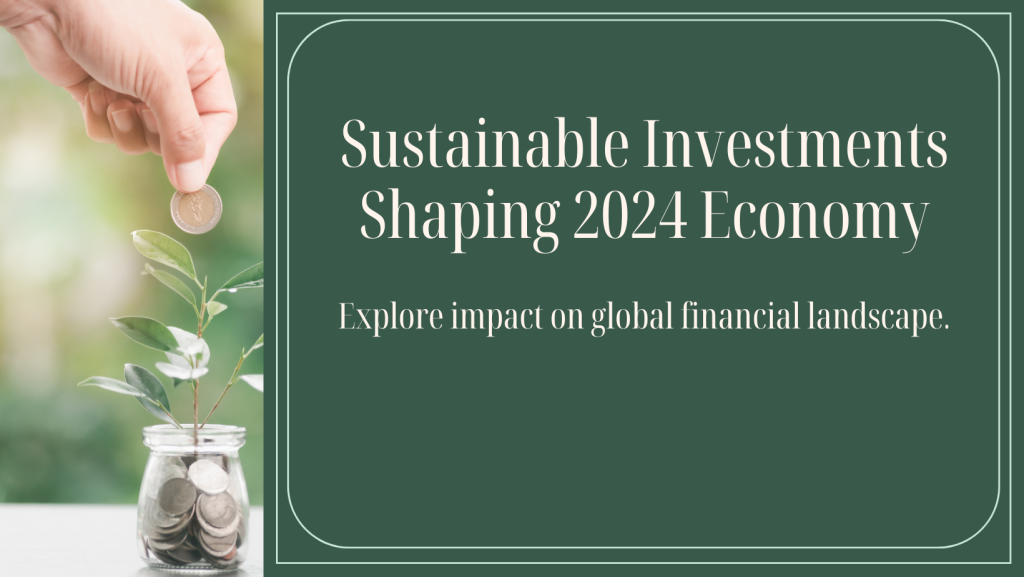In 2024, the global economy finds itself at a pivotal moment where sustainability has emerged as a key driver of investment decisions. With increasing awareness of environmental and social issues, investors are increasingly looking beyond financial returns to consider the broader impacts of their investments. This shift in mindset has led to the rise of sustainable investing, where Environmental, Social, and Governance (ESG) criteria are integrated into investment strategies.
One of the most notable trends in the world economy of 2024 is the growing interest in renewable energy investments. As the world grapples with the challenges of climate change, governments, businesses, and investors are increasingly turning to clean energy sources such as solar, wind, and hydro power. Not only do these investments offer attractive returns, but they also contribute to reducing carbon emissions and mitigating the effects of climate change.
In addition to renewable energy, sustainable investing encompasses a wide range of sectors and industries. From sustainable agriculture and forestry to ethical supply chains and corporate governance, investors are seeking opportunities to align their portfolios with their values. This shift in investment preferences is not only driven by ethical considerations but also by a growing recognition of the financial risks associated with unsustainable practices.
Furthermore, the rise of sustainable investing is not limited to niche markets or specific regions. It has become a global phenomenon, with investors around the world incorporating ESG criteria into their decision-making processes. This trend is further fueled by regulatory developments, as governments and financial regulators implement policies to promote sustainability and transparency in the financial markets.
Overall, the rise of sustainable investments is reshaping the world economy of 2024, driving positive change across industries and sectors. By allocating capital towards companies and projects that prioritize environmental and social responsibility, investors are not only generating financial returns but also contributing to a more sustainable and equitable future for generations to come.




